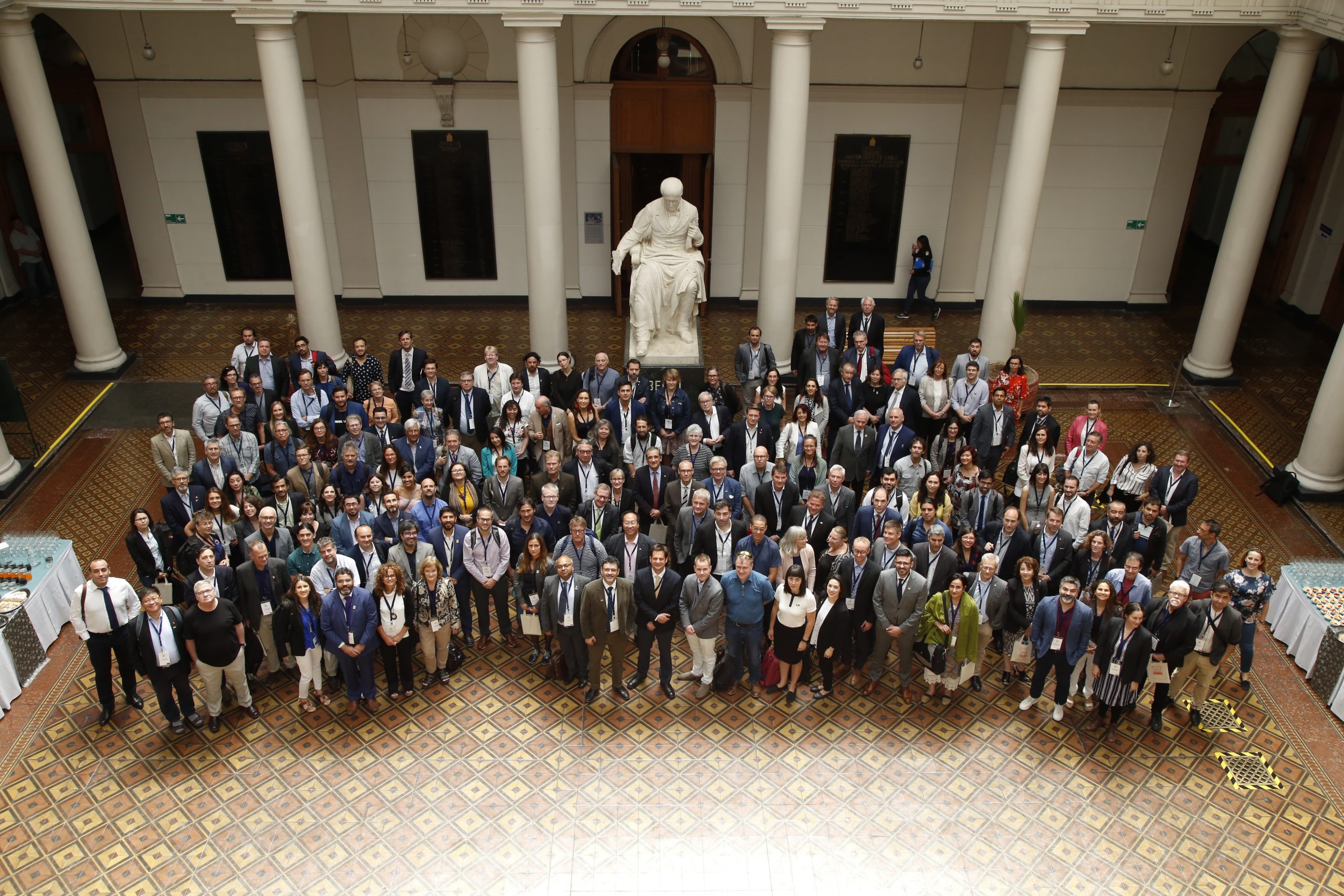Advances in solutions for the treatment of cancer and neurodegenerative diseases such as Alzheimer’s, natural disaster management, migration, challenges for democracy and innovation, are some of the topics that will be addressed in the second version of the Chile-Sweden Academic Forum, an event that was inaugurated by UC President Ignacio Sánchez and Universidad de Chile, Ennio Vivaldi.

Advancing in the internationalization of universities, taking an interdisciplinary perspective, are the two main challenges posed by President Ignacio Sánchez in front of two hundred academics from 18 study houses from Sweden and Chile.
Two years ago, in 2016, the joint work between the universities of Lund, Uppsala, Chile and Católica, ACCESS was born, a collaboration platform that seeks to link academics, students and professionals from both countries, to develop research in areas of mutual interest. Thus, the first Chile-Sweden forum was born, in August 2017, an event in which ten thematic areas were identified, generating the first ties. In addition, the funding agencies of each country agreed to create the Chile-Sweden Research Cooperation Support Contest.
“This is a unique opportunity to be able to connect and strengthen ties with the best universities in Sweden, adding study houses from different regions of Chile. In this way, this platform becomes a very relevant collaborative instance so that, through the contact of top-level experts, promote cutting-edge research and the development of innovation that contribute to tackling global problems locally”, stated Ignacio Sánchez.
As Stacey Sörensen, Vice-President for Research and Research Infrastructure at Lund University added, “Chile is an important partner for us, on many levels, but the main goal is to increase cooperation through dialogue and research, addressing the big complex problems as a whole, uniting the different experiences and knowledge”.
For his part, the UC Vice-President for Research Affairs, Pedro Bouchon, delved into the need to “advance in internationalizing our institutions. It is not just about sending our students abroad, but that the entire university community live an international experience ”.
At the inauguration, the Swedish Ambassador Oscar Stenström, Universidad de Chile’s President, Ennio Vivaldi and the Vice-President for Research Affairs of this university, Flavio Salazar, also took part.
Common interests
Is immunotherapy the cancer treatment of the future and will it be accessible to all? What challenges does aging pose in Chile and in the world? Do we know how many pesticides are in the food we eat? What are the problems that affect migrant women? How do we adapt to extreme events intensified by climate change? What is the Swedish formula for innovation? How do we approach the changes posed by today’s democracies? These are some of the questions that the researchers will address during the three days of the forum.
“The experience they have in Sweden in land management and sustainability, in addition to their high standards, is very interesting to apply in Chile. And for their part, the Swedes have much to learn from the realities that Chile has. It is very interesting to meet and in fact, there are already three project initiatives that were formulated from this exchange”, affirms Francisco Meza, academic from the Faculty of Agronomy and Forest Engineering, an expert on climate change.
Social sciences are also very present in this meeting. As Claudia Matus, professor at the Faculty of Education and researcher at the Center for Educational Justice explains, “we seek to integrate this idea of the arts, politics, language, in order to make the production of knowledge a little more complex in these areas that are more delineated in the idea of how to advance in overcoming social and cultural inequities ”.
In this second version, University of Stockholm, Karolinska Institute, Royal Institute of Technology in Stockholm and Swedish University of Agricultural Sciences are also participating; while from Chile, the universities of Concepción, Antofagasta, Aysén, O’Higgins, Magallanes and Santiago de Chile joined. In this way, it is sought that the different institutions are represented and form a network that contributes to the development of both countries.